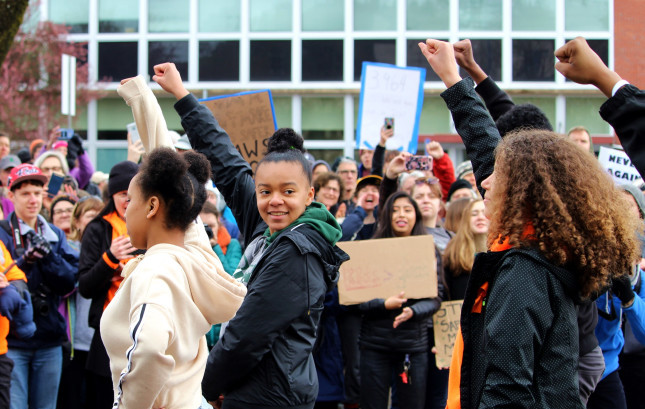-
ICPD at 25: Unfinished Business Points to Unmet Needs
April 22, 2019 By Nazra Amin
“The ICPD (International Conference on Population and Development) Programme of Action is a promise. A promise that was made 25 years ago to young people, the intention of which was to give young people hope—hope that their rights, their needs, and their demands would be met,” said Kobe Smith, Vice President of the Youth Advocacy Movement at International Planned Parenthood Federation/ Western Hemisphere Region, at a recent Wilson Center event. This year marks the 25th anniversary of ICPD in Cairo.
Looking Back
The 1994 ICPD hosted 179 countries to discuss policies surrounding population growth. Its resulting Programme of Action shifted how the world viewed population dynamics from an emphasis on demographics to an emphasis on human rights and the individual. Governments agreed that the “key to this new approach was empowering women and providing them with choices through expanded access to education, health services, and promoting skill developments and employment,” said Danielle Engel, Adolescent and Youth Team Lead of the United Nations Population Fund (UNFPA).
Although not all goals set in 1994 were met, without ICPD much progress made would not have been possible, said Arthur Erken, Director of the Division of Communication and Strategic Partnerships at UNFPA. Before Cairo, he said, few countries had reproductive health policies and programs, and now few do not. Rates of child marriage are declining, most children can go to school, and women’s unmet need for contraceptive is increasingly met.
Lingering Challenges
However, even after 25 years of progress, challenges remain, Smith said, including economic and social inequalities around the world. “Conflict and armed violence result in women and girls having their access to reproductive health and services taken away,” said Saba Ismail, Co-founder of Aware Girls. In addition, cultural, religious, and legal challenges that must be overcome before the ICPD Programme of Action can be fully realized, said Ismail. “The Programme of Action remains relevant because the challenges that we face remain relevant, remain present,” said Smith. Cairo’s ICPD was groundbreaking, and in regard to Nairobi, “if we believe that we can gather the forces needed to resist and move on to higher ground, we can do it,” said Carmen Barroso, Co-chair of the Gender and Rights Advisory Group at the World Health Organization.
Young People as Catalysts for Change
Young people are crucial to advancing not just the ICPD Programme of Action, but all social movements. Not only are they one of the more vulnerable groups, they also are one of the largest catalysts for change. Now some 1.8 billion young people can help advance the ICPD Programme of Action, said Ismail. “Young people still face many challenges, especially young women and girls,” she said, “young women are especially at high risk because of the lack of friendly and confidential sexual and reproductive health and services.” It is more important than ever to have young people at the table, bringing their perspectives and ideas to this movement.
ICPD’s Programme of Action is appealing to youth, Smith said, because “we come from a place of humanity. we come from a place of hope, and we come from a place of love.” This year’s ICPD in Nairobi serves as an unprecedented opportunity for young people, Erken said, because it is a space for them to demand the changes that are needed globally.
Sources: United Nations Development Programme, United Nations Population Fund.
Photo Credit: Photo courtesy of David Geitgey Sierralupe. All rights reserved.
Topics: demography, development, Dot-Mom, featured, From the Wilson Center, gender, global health, human rights, media, video, youth
 A Publication of the Stimson Center.
A Publication of the Stimson Center.




